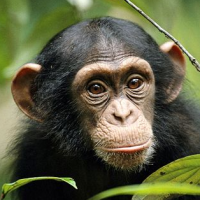 One of the recurring themes in this narrative is the realisation that we are all subject to the emergent effects of millions of years of adaptive evolution.
One of the recurring themes in this narrative is the realisation that we are all subject to the emergent effects of millions of years of adaptive evolution.
We all know about genes, the chemical code called DNA, that holds the instructions for building a person.
We are less aware of memes, the cultural code that holds the instructions for building a society.
And we are even less aware of the complex interaction between genes and memes.
One of the emergent properties of this gene/meme interaction is our ability to use symbolic language and causal reasoning.
But this amazing ability only developed recently, in the last few million years, and that means evolution has not had time to finish the job. So we are left with prototype hardware and software.
The prototype hardware is called ChimpWare and it is the 1.3 kg of wetware between our ears. On the surface it looks a bit like the wetware of other animals, but appearances are deceptive.
Our ChimpWare is a multi-level-parallel-multi-processor! Amazing engineering.
And rather than evolving a completely new design (which is rather difficult for a reactive evolutionary process), we have evolved newer prototypes that sit on top of the older wetware.
This build-on-the-old-foundations approach has a downside … the newer parts and the older parts need to talk to each other and they use different languages.
Different software.
The newer part uses sequential, causal logic and communicates using symbolic language. The older part uses parallel, associative logic and communicates using emotions. Thinking and feeling. Rational and irrational.
The software is ChimpOS 1.0 and we are not going to get an update … because it too is a work-in-progress.
When we are forced by circumstance to grapple with the challenge of improving a complex adaptive system such as health care, we have no choice but to use ChimpWare and ChimpOS both individually and collectively. And it is not well designed for this job.
 So we make mistakes, and we are often not aware of the errors we are making. All we become aware of is the gap between our intent and our impact.
So we make mistakes, and we are often not aware of the errors we are making. All we become aware of is the gap between our intent and our impact.
Our intuition deceives us, which also implies that some concepts that are valid and useful feel counter-intuitive. So we discount them.
“The Invisible Gorilla” is well worth a read because it describes many of the illusions that our ChimpWare and ChimpOS generate.
Illusions such as the illusion of attention, the illusion of memory, the illusion of confidence, the illusion of knowledge, and the illusion of cause.
But with a conscious insight into the limitations of the legacy of evolution, we can actually learn to avoid many of the pitfalls, and to develop our individual and collective capability for improving the complex adaptive systems that we live in.
For the benefit of everyone and everything.
In fact, our long term survival depends on it – both collectively and individually.
So doing nothing is not an option.
For more posts like this please vote here.
For more information please subscribe here.
